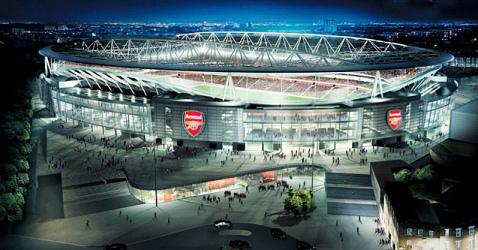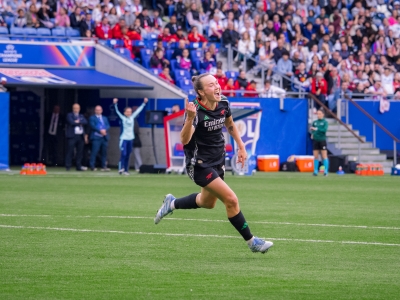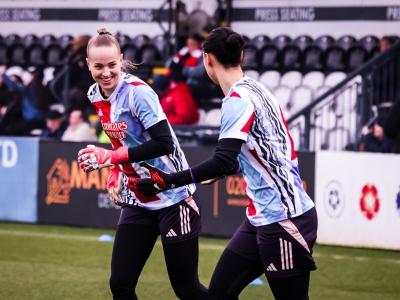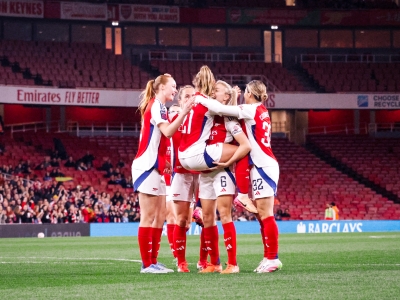Part 2 - The Arsenal shares
The first thing Arsenal fans need to know it that whoever we might think morally owns the Club the actual owners are the shareholders. So that is definitely not the fans, not the players – although they take more money out of the Club than most, not in our case the chairman as his is a relative small shareholding and not necessarily the directors because they do not all necessarily own shares to any significant size. Directors are appointed by the shareholders to run the Club which of course is altogether different from the manager who runs the team. There are just over 62,200 issued shares so potentially there could also be that many different shareholders because anyone can buy an Arsenal share. But there aren’t 62,200 shareholders because some own lots of shares while some others might own just one. It also follows that the more shares you own the more say you have. Anyone owning 50.1% of the shares effectively controls the Club as they are able to outvote the remaining 49.9% of shareholders.
It should be pointed out that Arsenal Directors and shareholders do not currently take any money out of the Club unless they are employed to do a job for the Club. The Board have not paid themselves or any of the shareholders a dividend (a cut of any of the annual profits) since the 1974-75 season. If they sell their shares the money is not taken from the Club it merely means that the ownership of the shares changes hands from one individual or organisation to another. Small changes of share ownership change nothing. Large changes of share ownership could change things drastically but don’t always do so. The 10% of the Club’s shares that Stan Kroenke purchased from ITV, could but will not necessarily change things. Either way Kroenke’s relatively large share purchase is what kicked off all the recent fuss.
So, as mentioned, currently no dividends are dished out to the detriment of team spending or stadium building, although that could of course change at any time. If Arsenal were to start making a small fortune every year there is nothing to stop those in control paying dividends to all the Club’s owners (shareholders), this being common practice with companies. They could, should they so chose, pay a dividend instead of investing the money in players, staff, training facilities, new stadiums or whatever.
One of the big concerns has been that if we were to be taken over by a new owner that owner might wish to make money out of the Club. They could do this either by taking a regular dividend or by selling their shares at a higher price to someone else (which has no effect on the Club other than the change of ownership) or indirectly by transferring any debts they incurred in buying the Club to the Club itself. Some of our current Directors regard themselves as custodians of an historic institution rather than drivers of an internationally recognised global brand leader, mainly because their shares, or those they haven’t sold off yet, may have been in their family for generations. Which is where I suspect Peter Hill-Wood was coming from with his unfortunate choice of words directed at Stan Kroenke 'we don't want his sort' or words to that effect.
Football used to be our one and only business and years ago virtually all income was derived from gate receipts. Currently however we rely not just on football but such things as property development and small conferences. While the Club brand is also used to flog everything imaginable to a world-wide market of Arsenal fans, Arsenal hangers-on and wannabes. Just as our success in the League, Cups and Europe earns us prize money plus income derived from television rights, then so any such success is compounded by additional sales of merchandise.
There has in the past year been a big movement (a changing value in the share price) in the current Arsenal shares market and as I write this piece the shares are changing hands at £7,800 each having peaked at over £8,100, which was an all time high, a few months back. These very same shares were being traded at £4,525 as recently as August 2006.
When David Dein purchased his shares in 1983 he purchased 16.6% of the total shares for £292,000. So it figures that 100% of the Club back in 1983 would have been valued at about £1,760,000, an incredibly low sum compared with the Club’s current valuation. Given the recent price of shares the August 2006 value was perceived as being £281,531,925. That’s a straight-forward calculation of £4,525 multiplied by the number of shares, 62,217 being the total number of issued shares in Arsenal Football Club. Right now with the share price standing at lets say £7,500 that value has shot up to £466,627,500 give or take a few bob.
These are simplistic figures because they take no account of the Club’s debts, which are also a major factor in the overall value of the Club. But hopefully you can see that the market (buyers and sellers of shares) clearly thinks the Club is worth a lot more now than it was last year and a hell of a lot more than it was in the 1980’s. This is thanks mainly to potential income from our new stadium, increasing TV rights both domestically and overseas plus money yet to be realised from property development.
As you know share prices fluctuate and the value of shares might be compared to Cup Final tickets. If you are going to the Final and have a ticket it is worth the face value of the ticket, let’s say £50 which is what you paid for it if you were lucky enough to buy one when they were originally released. If you have to buy one from a tout a week before the Final they might be worth £250. While if you’re trying to buy one an hour before kick the price might be £500. Likewise if you are stuck in an airport in the USA an hour before the kick-off at Wembley your ticket will be worth bugger all. In each instance the ticket has a face value of £50 but the perceived value of that ticket changes with circumstances. Shares change their perceived value in a not dissimilar way; it’s a matter of supply and demand. Broadly speaking they go up if there are more buyers than sellers and down if there are more sellers than buyers, so if someone is buying or looking to buy the price will tend to rise.
Who is buying and who is selling we don’t always get to find out immediately because shares can be purchased under the name of a nominee. In which case we’ll know how many shares have changed hands at what price but might not know on behalf of whom they are being purchased. Acute financial insight however is not always required to guess just who might be buying. But the bottom line is that any existing shareholder could be selling to any other existing shareholder or to absolutely anyone else.
Chances are that right now it won’t be the shareholders who are also Arsenal fans that are flogging shares. Because hopefully they will understand that now is not the time to do so for two obvious reasons. Reason one: the shares are still on the up and up because there is almost certainly a pending take-over battle on the cards. Reason two: because any real fan would feel a total prat if he or she found out at a later date they’d sold out to the possible bad guys. Whoever they might be, and that’s the thing, right now we don’t have sufficient information to know which group of shareholders might best benefit our Club the most. Sensible Club loving shareholders should hang on to theirs because as a combined force they might yet become key players in what many informed people suspect may be about to unfold.
Ed’s note – In this respect, small shareholders would be in a stronger position if they joined together under the association formed by minor Arsenal shareholders to lobby the Arsenal board – The Arsenal Supporters’ Trust - Click here for details of the organisation and how to join – including the option to become a member online
That said it can also be seen that there are some shareholders who have purchased Arsenal shares purely in the belief that their value will go up, as they have done, and that they will at some point cash in. These people are not fans they are merely taking what they consider to be an educated gamble. Financial Institutions that do this for a living are referred to as ‘Hedge Funds’, and seek what they consider to be ‘value investments’, essentially they invest in anything they believe to be under valued. If someone wants to buy a Club the price of shares can be expected to rise by simple virtue of the rules of supply and demand. Think in terms of Arsenal v Manchester United Cup Final tickets being worth far more than a Wigan v Watford Final tickets because there is far more demand. The face value will be the same but the market value (or touts’ price) will vary considerably for an AFC v ManU final to that of a Wigan v Watford final.
If you’ve made it this far and want to know who actually owns the Arsenal shares all will be revealed in Part 3
Many thanks to John, Nigel and Kev for their valuable input







